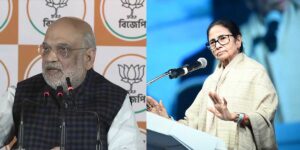In a big win for the Modi Government ahead of Gujarat and Himachal polls, the Supreme Court on November 7 backed a 10% quota in jobs and education for the Economically Weaker Sections (EWS), introduced just before the 2019 general elections. The EWS quota is not discriminatory and does not alter the basic structure of the constitution, said the majority judgement of SC bench. Two judges Chief Justice UU Lalit and Justice Ravindra Bhat dissented. Justice Bhat said he supported quota for the economically backward, but the exclusion of the socially backward sections is not allowed in the Constitution. Economic destitution, economic backwardness is backbone of this amendment and on this account, amendment is constitutionally indefensible. “However, excluding the classes such as SC/ST and OBC is not constitutionally permissible,” Justice Bhat said. CJI Lalit concurred with his view. The decision stands at 3:2. The EWS quota introduced through the 103rd constitutional amendment helped the BJP to reach out to those castes who were left out of the reservation system, like the Patels in Gujarat, Jats in Haryana, Marathas in Maharashtra and Lingayats in Karnataka. As many as 40 petitions were heard by the SC for 6 days. Tamil Nadu, which has among the highest reservations in the country, opposed the EWS and asked SC to revisit the Indra Sawhney or the Mandal judgement.

 Politics
Politics Business
Business Entertainment
Entertainment Sports
Sports Celebrities
Celebrities





